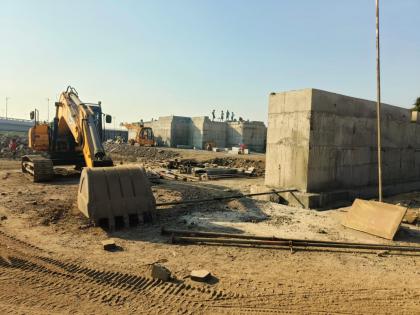Navi Mumbai: TTD Promises No Construction in Coastal Zone for Ulwe Balaji Temple, NGT Approves
By Lokmat Times Desk | Updated: August 10, 2025 14:54 IST2025-08-10T14:53:36+5:302025-08-10T14:54:29+5:30
The Tirumala Tirupati Devasthanams (TTD) trust has committed before the National Green Tribunal (NGT) to limit the construction of ...

Navi Mumbai: TTD Promises No Construction in Coastal Zone for Ulwe Balaji Temple, NGT Approves
The Tirumala Tirupati Devasthanams (TTD) trust has committed before the National Green Tribunal (NGT) to limit the construction of the Balaji temple at Ulwe coast strictly to the non-Coastal Regulation Zone (CRZ) areas.
This assurance was given during proceedings at the NGT’s Western Zonal Bench, following concerns raised by environmental activists regarding potential CRZ violations.
The issue was brought to light by NatConnect Foundation director B N Kumar, who filed a petition alleging irregularities in the allotment of a 40,000 sq m plot to TTD by CIDCO in April 2022.
An expert report by the Institute of Remote Sensing (IRS), Anna University, Chennai, commissioned by TTD, clarified the distribution of the temple plot:
2,748.18 sq m falls under CRZ-1A
25,656.58 sq m in CRZ-2
11,595 sq m outside CRZ
The Maharashtra Coastal Zone Management Authority (MCZMA) had allowed TTD conditional use of the CRZ-2 portion, pending finalization of the Coastal Zone Management Plan (CZMP)-2019 for Raigad district.
The updated CZMP-2019 redefined the area, allowing an increased buildable land portion outside CRZ, while maintaining a 50-meter mangrove buffer zone (CRZ-1A). According to IRS, the proposed temple structures, roads, and drainage are entirely outside CRZ as per the 2019 notification.
Despite MCZMA permitting a compound wall and garden landscaping in the 50-meter mangrove buffer zone, this was strongly opposed by Kumar’s counsel during the hearing. Additional concerns were raised about the temple plot lying in a flood-prone zone, as per CIDCO records.
After detailed discussions, TTD solemnly pledged not to undertake any construction in CRZ areas without prior permission. This commitment was accepted by the environmentalists, leading the NGT to dismiss the petition.
Kumar clarified that he is not against the temple project but urged consideration for a safer, environmentally friendly location. He also praised TTD for their environmental awareness efforts and plastic ban initiatives.
While satisfied with the outcome, Kumar warned that flood risks remain a concern, especially for lower areas around the elevated temple site, which could face waterlogging due to rising water levels
Open in app